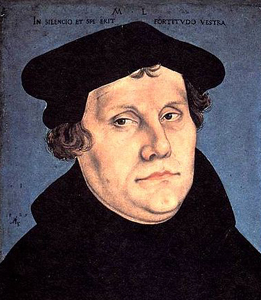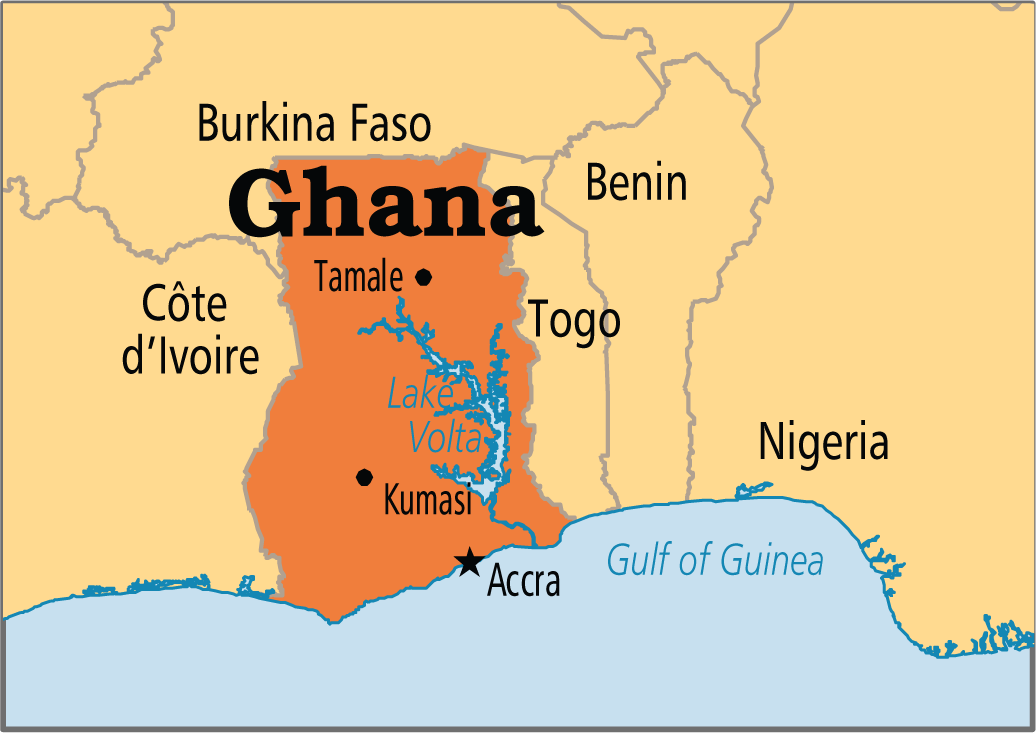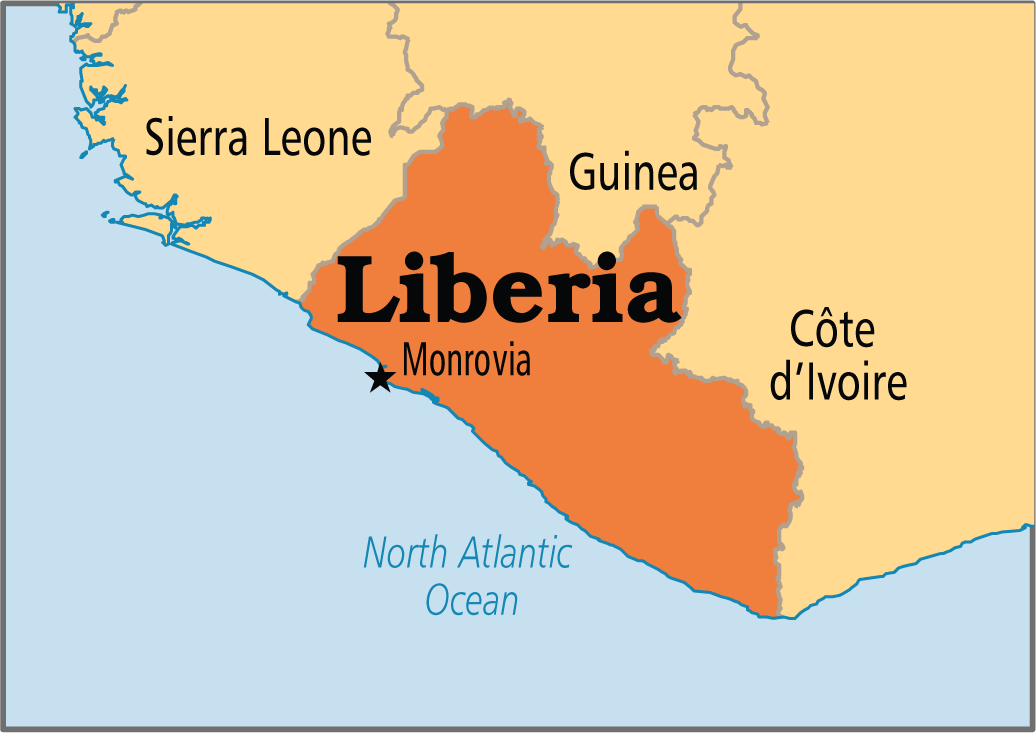We thank Rev. Dr. Anthony Steinbronn, District President, New Jersey, for offering permission to use the following thoughts on the “priesthood of all believers,” with special focus on Luther’s treatise, Concerning the Ministry to the Bohemian Christians. Click here to read the original post on Rev. Dr. Steinbronn’s blog on the New Jersey District Website
 In 1523, Martin Luther wrote a treatise to the Bohemian Christians titled Concerning the Ministry. In that treatise, he dealt with two ministry situations: (1) the right of congregations to elect their own pastors[1] and (2) the right of, and command to, God’s people, as the priesthood of all believers (1 Peter 2:4-10), to be engaged in the ministry of the Word (Matthew 13:3-9, 18-23, 51-52; Romans 10:13-17).[2]
In 1523, Martin Luther wrote a treatise to the Bohemian Christians titled Concerning the Ministry. In that treatise, he dealt with two ministry situations: (1) the right of congregations to elect their own pastors[1] and (2) the right of, and command to, God’s people, as the priesthood of all believers (1 Peter 2:4-10), to be engaged in the ministry of the Word (Matthew 13:3-9, 18-23, 51-52; Romans 10:13-17).[2]
That is why we, as Lutherans, affirm that the Predigtamt[3] (AC V) is the highest office in the church and from it flow all other offices in the church. Consequently, both the office of the pastoral ministry and the office of the priesthood of all believers have been entrusted with the ministry of the Word so that they might make known this “justifying faith” (AC IV) in the lives of others as they proclaim, tell, share, and witness the Gospel through the spoken Word in its various forms (Predigtamt).[4]
One normative example from the Book of Acts, in which His people are actively engaged in the Predigtamt, is recorded in Acts 8 and 11. It is the account of how the the priesthood of all believers (Priesteramt) are scattered because of a significant persecution that broke out in Jerusalem in response to Stephen’s witness and message[5] — and wherever His people were scattered, they “went about preaching the Word” (Acts 8:4)…
“and on that day a great persecution arose against the church in Jerusalem; and they were all scattered through the region of Judea and Samaria, except the apostles…now those who were scattered went about preaching the Word. Philip went down to a city of Samaria and proclaimed to them the Christ” (Acts 8:4-5)
“now those who were scattered because of the persecution that arose over Stephen traveled as far as Phoenicia and Cyprus and Antioch, speaking the word to none except Jews. But there were some of them, men of Cyprus and Cyrene, who on coming to Antioch spoke to the Greeks also, preaching the Lord Jesus. And the hand of theLord was with them and a great number that believed turned to the Lord” (Acts 11:19-21)
In these selected verses from the Book of Acts, we have the priesthood of all believers engaged in “the ministry of the Gospel — the spoken Word” (Predigtamt); and we witness the Holy Spirit bringing people to saving faith, whenever and wherever He wills, just as Augsburg Confession Article V declares.
The following excellent and extensive quotation is from Dr. Robert Preus regarding the meaning of Predigtamt (AC V) and its relationship to the ministry and work of the whole church.
“Notice that in this passage no mention of the office of the pastor is made, no mention of man, of rank, or ordo. Rather an activity is spoken of, a function, a preaching activity (ministerium docendi evangelii). This is the means whereby faith is created and nourished, the means whereby the church is born and nourished. And thus this ministry becomes the essential work of the church. Notice the prominent place given this ministry by Melanchthon. The article on this ministry of the Word follow directly upon his presentation of the work of Christ and justification by faith, and it precedes the articles on the new obedience and the church (Art. VI-VIII), for there can be no new obedience or church without this ministry.
It is important to note the functional non–institutional nature of this ministry. Melanchthon is simply speaking here, as elsewhere, of the preaching of the Gospel Word, or of the work of the Gospel Word. This fact is illustrated clearly in the Schwabach Articles VII as they speak on this point. ‘To obtain this faith, or to bestow it upon us men God has instituted the ministry of the oral word (Predigtamt oder inundlich Wort) namely, the Gospel through which He causes this faith and its power and use and fruit to be proclaimed, and through it as through means He gives us faith along with the Holy Spirit, as and where He wills. Apart from this there is neither means nor way, neither mode nor manner to receive faith.’
There can be no doubt that this article, like AC V, describes the work of the church, or more properly, God‘s work through the church in causing His kingdom to come. This conforms to the Confessional notion that God is the author of baptism and of the Sacrament of the Altar. The church‘s mission, or ministry, is God‘s mission through the church. And it is a ministry with a completely soteriological and eschatological goal. The kingdom of power (creation, preservation, providence, civil government) is totally in the service of the kingdom of grace, namely, God’s Gospel claim upon men.
The Lutheran Confessions see this ministry as the work of the whole church in contrast to a ministerium leviticum which still dominated the hierarchical notion of the Romish church (Tr. 26). This functional view of ministry destroys all ranks (Tr. 7-13). What, then, is the office of the pastor? He is simply the public servant of the church, rightly called to teach and preach publicly and administer the sacraments (AC XIV).
The pastor does nothing that the church is not commissioned to do.
The ministry of the Word today is seen as the continuation of the apostolic ministry which in turn was the continuation of Christ’s ministry (Tr. 9), Christ’s opus proprinin, which is to proclaim the Gospel.” (Robert D. Preus, “The Confessions and the Mission of the Church,” The Springfielder 39 (June 1975), No. 1: 22-23).
FOOTNOTES
[1] “…since they are the people of God it is due them that no one be set over them without their election, and the bishop ought to confirm no one whom they did not know and approve of as suitable” (LW 40:11)…”then call and come together freely, as many as you have been touched in heart by God to think and judge as you do. Proceed in the name of the Lord to elect one or more whom you desire, and who appear to be worthy and able. Then let those who are leaders among you lay hands upon them, and certify and commend them to the people and the church or community. In this way let them become your bishops, ministers or pastors. Amen. The qualifications of those to be elected are fully described by Paul in Titus 1:6ff. and 1 Timothy 3:2ff.” (LW 40:40)
[2] “…the command, to declare the wonderful deeds of God, is nothing else than to preach the Word of God” (LW 40:22); “the ministry of the Word is the highest office in the church, that it is unique and belongs to all who are Christians, not only by right but by command” (LW 40:23) and “a Christian is born to the ministry of the Word in baptism” (LW 40:37).
[3] “To obtain such faith God instituted the office of the ministry, that is, provided the Gospel and the sacraments. Through these, as through means, He gives the Holy Spirit, who works faith, when and where He pleases, in those who hear the Gospel (Tappert 1959:31).”
[4] This understanding of Predigtamt in AC V is predicated upon its definition and usage in the predecessor documents of the Augsburg Confession developed by Martin Luther, Philip Melanchthon and others: “To obtain such faith or to give it to us, God has instituted the preaching office or the spoken word (that is, the gospel) through which He has this faith proclaimed, along with its power, benefits and fruits. God also bestows faith through this Word, as through an instrument, with His Holy Spirit, when and where He wills. Apart from it there is no other instrument or way, passage or path, to obtain faith” (Schwabach Article 7; July 1529). “On the external word we believe that the Holy Spirit, properly speaking, gives this faith or His gift to no one apart from preceding preaching, or the spoken word, or the gospel of Christ. Rather, the Holy Spirit works faith through and with this word when and in whom He wills” (Marburg Article 8, October 1529).
[5] “Another example is provided by Stephen and Philip, who were ordained only to the service at the tables (Acts 6:5-6). Yet the one wrought signs and wonders among the people, disputed with members of the synagogue and refuted the council of the Jews with the word of the Spirit (Acts 6:8ff.), and the other converted Samaritans and travelled to Azotus and Caesarea. By what right and authority, I ask?
Certainly they were not asked or called by anyone, but they did it on their own initiative and by reason of a common law, since the door was open to them, and they saw the need of a people who were ignorant and deprived of the Word… And the Eunuch converted by Philip (Acts 8:36)… [the Eunuch] undoubtedly taught the Word of God to many, since he had the command to make known the wonderful deeds of God who called him from darkness into His marvelous light (1 Peter 2:9).
From his word (the Ethiopian Eunuch’s) resulted the faith of many, since the Word of God does not return in vain (Isaiah 55:11). From faith sprang a church, and the church through the Word received and exercised a ministry of baptizing and teaching, and all of the other functions enumerated above [Luther listed seven functions of the priesthood of all believers: “to teach, to preach and proclaim the Word of God; to baptize; to consecrate or administer the Eucharist; to bind and loose sins; to pray for others; to sacrifice; and to judge all doctrine and spirits” (LW 40:21)].
All these things a eunuch accomplished through no other right than that inherent in baptism and faith” (LW 40:38).

 In 1523, Martin Luther wrote a treatise to the Bohemian Christians titled Concerning the Ministry. In that treatise, he dealt with two ministry situations: (1) the right of congregations to elect their own pastors
In 1523, Martin Luther wrote a treatise to the Bohemian Christians titled Concerning the Ministry. In that treatise, he dealt with two ministry situations: (1) the right of congregations to elect their own pastors “…To the best of my knowledge the increases (over two decades) can be summarized as follows: from 1 to 13 congregations; from 0 to 19 teaching posts/ preaching stations; from 1 to 6 worship languages; from 25 to 610 baptized members; from 45 to 770 pre-baptism learners;
“…To the best of my knowledge the increases (over two decades) can be summarized as follows: from 1 to 13 congregations; from 0 to 19 teaching posts/ preaching stations; from 1 to 6 worship languages; from 25 to 610 baptized members; from 45 to 770 pre-baptism learners;  “…before they were allowed to study to be a trained lay preacher… they had to already have planted two village churches in their area….”
“…before they were allowed to study to be a trained lay preacher… they had to already have planted two village churches in their area….”